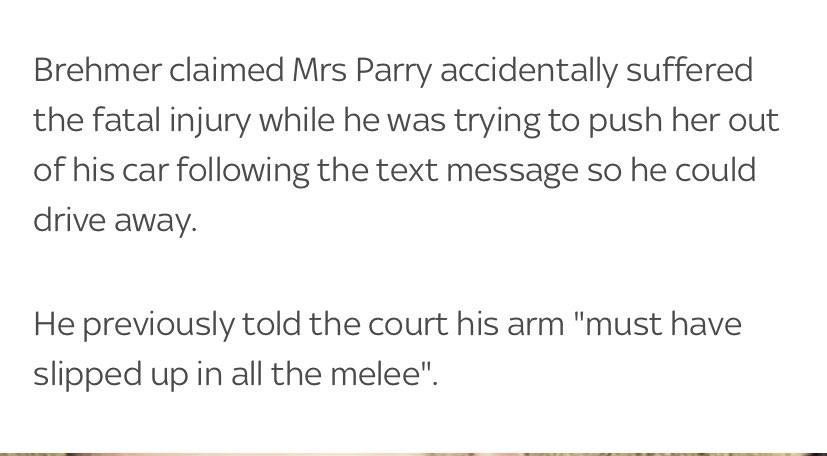
Grimly cynical.
The Attorney General - who has absolutely no experience of criminal law - is so desperate to exploit this tragic case that she is inserting herself into proceedings that she is not competent to conduct.
express.co.uk/news/uk/135735…
The Attorney General - who has absolutely no experience of criminal law - is so desperate to exploit this tragic case that she is inserting herself into proceedings that she is not competent to conduct.
express.co.uk/news/uk/135735…
Treasury Counsel who usually represent the Attorney General at the Court of Appeal for appeals against “unduly lenient” sentences are appointed from the best and most experienced criminal barristers.
The Attorney General has not to my knowledge prosecuted a magistrates’ trial.
The Attorney General has not to my knowledge prosecuted a magistrates’ trial.
Apparently Ms Braverman believes that the Court of Appeal (Criminal Division) needs reminding “how important this issue is to the government”.
And a spoiler of what Ms Braverman thinks about the “wet, liberal judges” of the Court of Appeal.
And a spoiler of what Ms Braverman thinks about the “wet, liberal judges” of the Court of Appeal.

If ever there was a tell of the Attorney General’s wholesale ignorance of criminal law, it is here.
Nobody who has appeared before the Court of Appeal would describe their jurisprudence as “wet” or “liberal”.
This sort of threat is beneath the dignity of the @attorneygeneral.
Nobody who has appeared before the Court of Appeal would describe their jurisprudence as “wet” or “liberal”.
This sort of threat is beneath the dignity of the @attorneygeneral.

Most criminal barristers cut their teeth doing magistrates’ trials.
Ms Braverman’ debut in the criminal courts will be leading a QC in the Court of Appeal in a sentence reference following a high-profile murder trial.
Having threatened to smear the judges if she doesn’t win.
Ms Braverman’ debut in the criminal courts will be leading a QC in the Court of Appeal in a sentence reference following a high-profile murder trial.
Having threatened to smear the judges if she doesn’t win.
• • •
Missing some Tweet in this thread? You can try to
force a refresh












